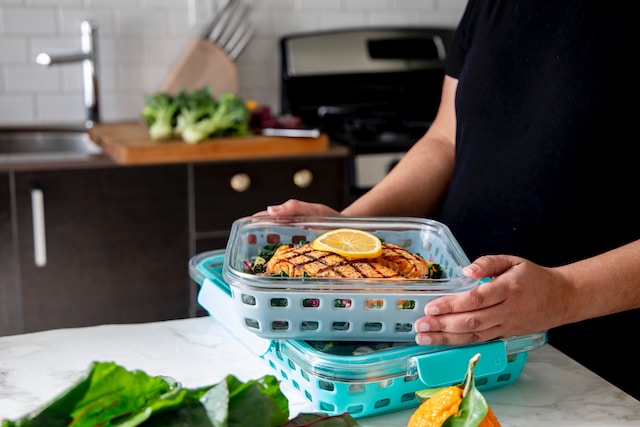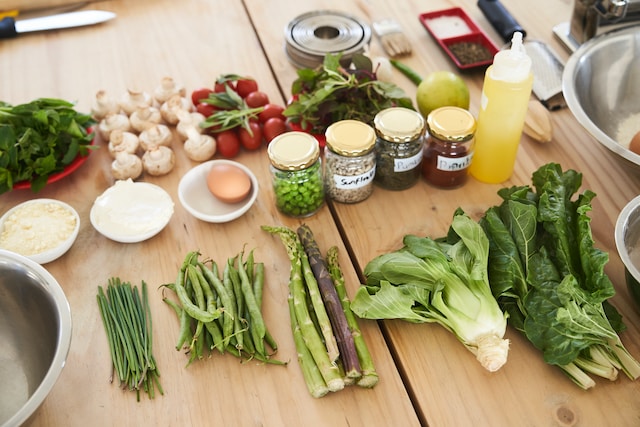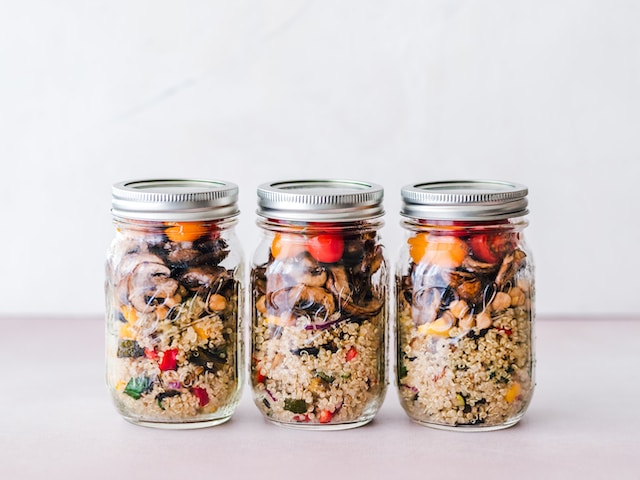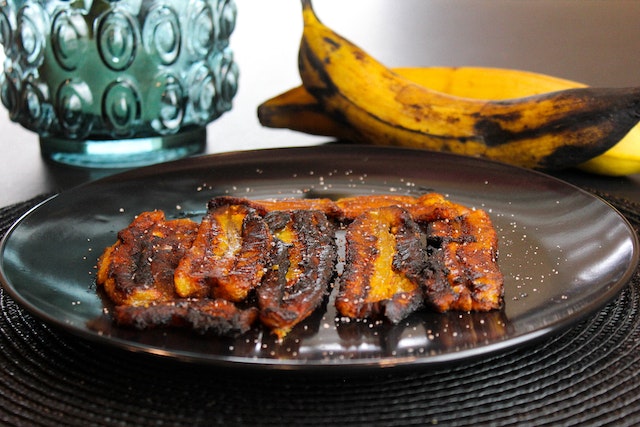

It is important to plan your meals for the week in advance. This will help you stay on track and eat healthy. Although it may seem daunting at first, meal prepping can save you time and help you achieve your nutrition goals.
I am a nutritionist and would like to share with you some tips and strategies on how you can prepare meals in advance and still stay healthy while saving time during the week.
It doesn’t need to be difficult or time-consuming. If done right, meal preparation can save you energy and effort throughout the week. These simple steps will show you how to prepare nutritious meals in advance without sacrificing taste or quality.
Let’s start!
Plan Your Meals in Advance
Preparing meals for the week can help you save time and stay healthy. You need to know how you can plan ahead to ensure you eat nutritious meals during your busy week. Here are a few tips to help you get started.
Plan your meals and snacks for the week at the beginning of each one. It’s not necessary to be too specific but having an idea what you will eat each week can help you stay organized.
Add the ingredients you need to prepare each meal or snack to your shopping list. You will have everything you need when you are ready to cook.
Shop once you have your list! Choose foods that are rich in nutrients, such as fruits, vegetables and whole grains. Also, choose lean protein, healthy fats, and lean proteins. These foods will give your body energy and fuel without causing it to be overloaded with unhealthy ingredients.
Plus, having these foods prepared for meal preparation makes cooking much easier!
The Best Ingredients to Buy
Shopping carefully is essential to creating a healthy weekly meal plan. Make a list of the meals you want to cook and any ingredients you need. It’s now time to go shopping!
Tips for selecting the right ingredients
- Macronutrients:
- Proteins: Select lean sources like fish, poultry and legumes.
- Healthy fats include nuts, seeds and avocados, as well as heart-healthy meals.
- Micro-nutrients:
- Whole grains include brown rice, quinoa and other whole grains such as oats.
- Fruits and vegetables: Include plenty of fresh fruits and vegetables in your weekly menu plan.
While shopping, read the labels to be aware of any added sugars or sodium. Eating healthy foods can help you maintain a healthy body weight and provide essential vitamins and minerals for optimal health.
Following these guidelines will allow you to create healthy meals that keep you feeling energized all week.

Making Your Meals Ahead Of Time
Planning your meals in advance is a good way to ensure that you eat healthy all week. This is like packing your own lunch before you start the day, but on a larger scale.
You can have healthy meals prepared for your busy times with some planning and preparation.
Plan your meals for the week. Create a weekly meal plan using an app, website or notebook. Decide what ingredients you will need, and then do a big grocery shopping at the beginning of the week to ensure you have all the items you require.
It’s time to start cooking once you’ve got all the ingredients at hand! Divide your meal preparation into smaller chunks to avoid becoming overwhelmed. For example, one day could be dedicated to chopping vegetables, and another for cooking the protein sources you will use for the next week.
Use proper food storage methods, such as placing cooked foods into airtight containers or dividing them up into individual portions so they don’t go bad before you get to enjoy them.
Making meals in advance will set you up to be successful and stay healthy throughout the week!
Storing your prepared meals
It is important to store your prepared meals properly in order to keep them safe, nutritious and delicious. Glass or BPA-free materials are best for storage containers. Avoid storing food in plastic bags or containers that are only used once. These can contain harmful chemicals which will leach out into your food over time.
Label and date the container with the meal name and the time it was prepared. You can then keep track of the date and time that you should eat your food. Use Tupperware containers that are airtight to prevent moisture and odors from entering. Check that the containers are microwave-safe if you intend to reheat any meals at a later date.
Use wide-mouthed jars to store liquids such as soups and stews. This will allow them to be easily poured without making a mess. Plastic bags are only suitable for frozen foods that don’t need to be reheated, such as meats and vegetables that can go directly into stir-fries or salads. You should also consider how you will store your food to ensure that it stays as fresh as possible.
All perishable food should be refrigerated immediately after preparation. Place them in the back of your fridge, where the temperature is the coldest. This will prevent them from spoiling quickly because the door openings and closings can cause the temperature to fluctuate. You can also extend the shelf life of cooked meals by freezing them. Just make sure you wrap them tightly before freezing to avoid freezer burn or drying out.

Keeping Variety In Your Diet
It’s great to save energy and time by eating the same meal every day, but it shouldn’t be at the expense of nutrition. It is possible to maintain healthy eating habits and still keep your diet varied.
Try to spice up your meals by experimenting with different ingredients and methods of cooking. You could, for example, turn grilled meat into tacos, burritos, or a salad topping. You can also use other proteins, such as tofu and fish that are high in vitamins and minerals.
You should also include plenty of vegetables and fruits in your meal preparation. You can make it easier to add vegetables like carrots, peppers and onions into meals by pre-chopping them.
Frozen fruits are a great way to spice up smoothies and yogurt bowls.
Keep Your Nutrition Goals in Mind
It’s hard to stay on track when it comes time to prepare your meals for the week. It’s possible to achieve your nutrition goals with some effort and dedication.
Dietitians and nutritionists agree that a meal plan can be a great way to achieve your goals. How do you create a successful plan of meals?
You should first understand your nutritional needs. Do you want to build muscle? Are you trying to lose weight? Maybe you just want to maintain your current physique. It doesn’t matter what your nutrition goals are. You should calculate your caloric intake daily based on these desired results. You can then start to create meals that are specifically tailored for you.
Focus on preparing balanced meals. Include all five food categories: fruits, vegetables, dairy, proteins and carbohydrates. Try to add a new protein or vegetable each day. You’ll get a variety of vitamins and minerals with each serving.
Don’t forget to measure out exact serving sizes – this will also help you keep your calorie count in check.
Anyone can achieve success in their weekly meal preparation routine by taking into consideration these three key elements – understanding your nutrient requirements, eating balanced meals and varying them with portion control. It’s easy to reach your nutrition goals with a little determination and dedication!
Conclusion
Meal prepping can help you maintain a healthy diet and stay on track. You will save time, money and the headache of having to figure out what you are going to eat each day.
It’s also been proven that those who prepare their meals lose more weight and stick to their diet than those who do not.
I urge you to try meal preparation! It can be a simple habit to develop with some planning and practice.
You won’t need to compromise on taste to achieve your nutritional goals by preparing healthy meals each week.






